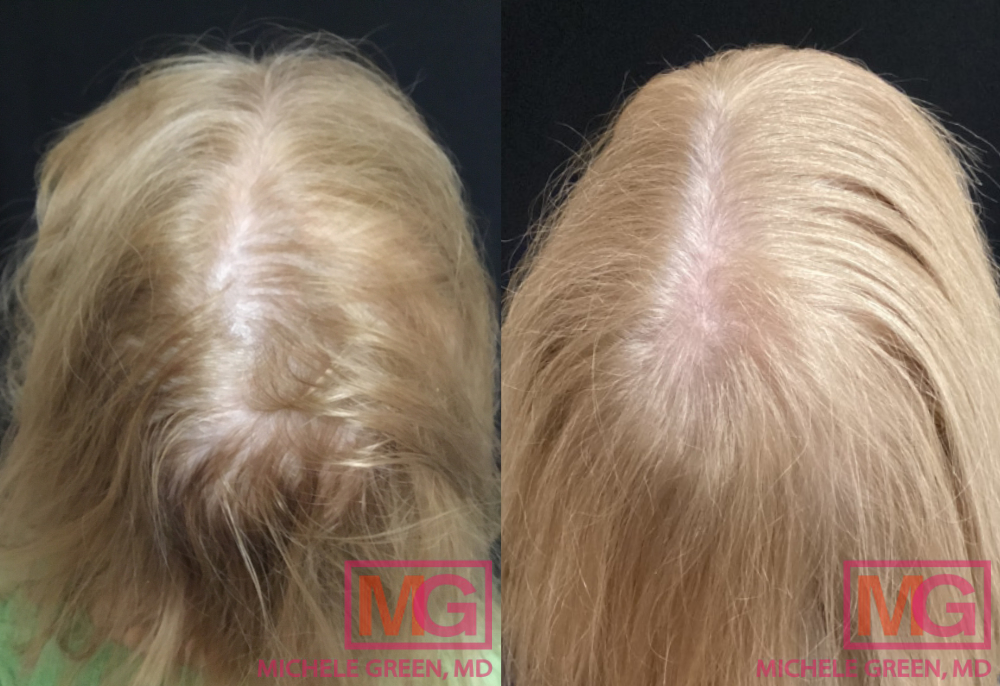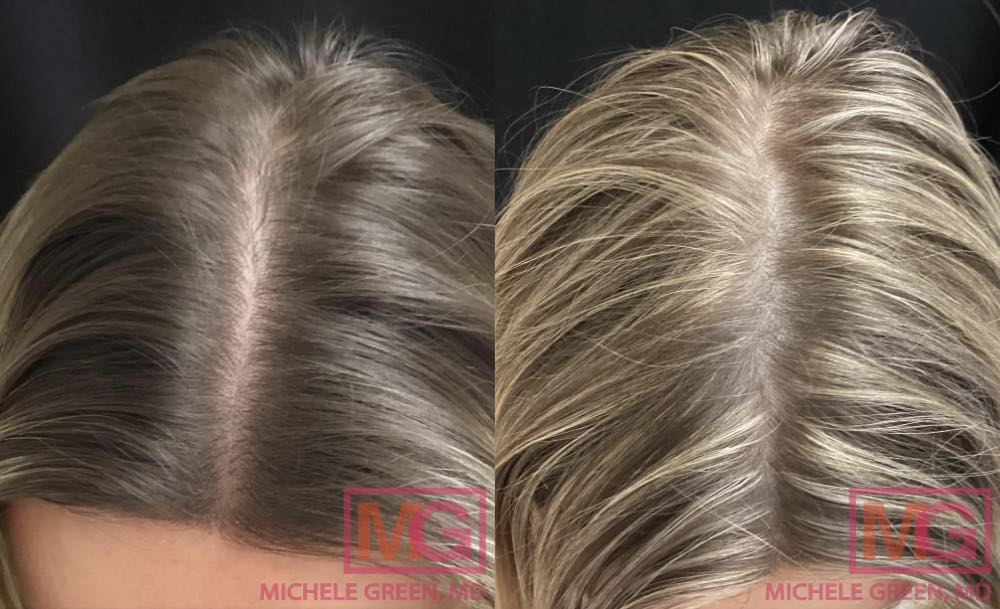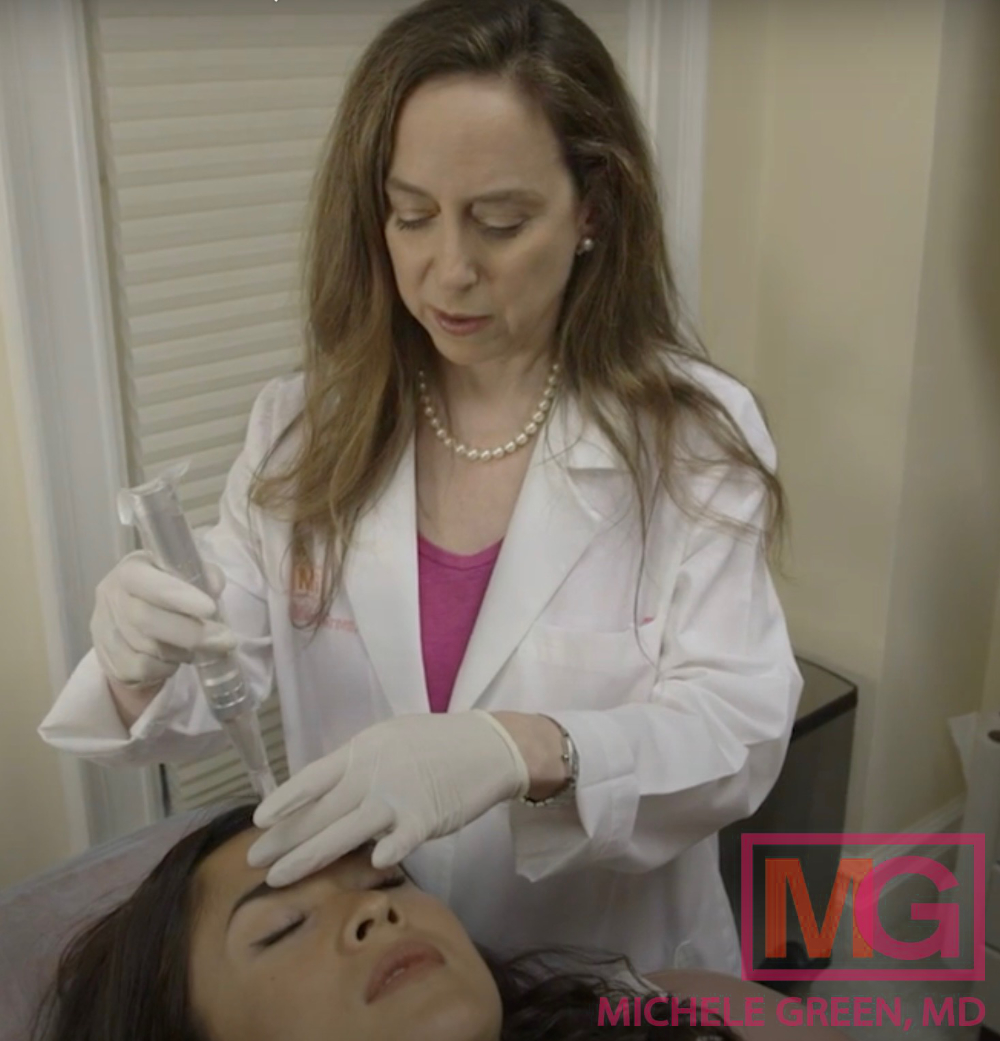Can You Have Caffeine Before or After PRP?
Platelet-rich plasma (PRP) is a versatile treatment option that offers limitless benefits in fields such as hair restoration and facial rejuvenation. Platelets are the main components in PRP that contain a wide array of growth factors and proteins necessary for wound healing and tissue repair and regeneration. Hair loss can be mitigated with PRP injections into the scalp, and the skin benefits from microneedling, such as improved complexion and decreased appearance of fine lines and wrinkles, can be enhanced with topical PRP application. Dr. Green expertly utilizes PRP to provide her patients with a customized treatment plan for hair or skin revitalization with almost no downtime or side effects. With any form of treatment, it is important to understand how factors such as caffeine can influence and impair results.
Caffeine is an integral part of many people’s everyday lives, as more than 85% of Americans have at least one caffeinated beverage each day. While caffeine is excellent for keeping us awake and alert, it can cause various changes in the body that can affect the results of PRP treatment. Caffeine can alter platelet functioning, hydration levels, and blood vessels dilation. Disruption of these processes can impair the healing and regeneration that is necessary for PRP therapy to be effective. It is typically advised that caffeine consumption is avoided for three to five days before and after treatment. During your consultation, Dr. Green will review the PRP post-treatment instructions with you to ensure that you receive the maximize benefits from the PRP.
Dr. Michele Green is an internationally renowned board-certified dermatologist with over 25 years of experience in providing her patients with the best non-invasive, innovative treatments for hair and skin rejuvenation, including platelet-rich plasma injections. Dr. Green was one of the first dermatologists to incorporate platelet-rich plasma into her Upper East Side dermatology office and has helped some of the world’s most discerning men and women achieve healthier-looking hair and skin. She is consistently recognized as one of NYC’s best dermatologists by Castle Connolly, New York Magazine, The New York Times, and Super Doctors due to her accessibility and dedication to her patients. Dr. Green employs a holistic approach to hair growth and facial rejuvenation, working with each patient to customize an individualized treatment plan suited to their specific aesthetic concerns and goals.
What is Platelet-Rich Plasma?
Platelet-rich plasma (PRP) therapy is one of the most popular, innovative restoration treatments in medicine today. PRP is made up of a highly concentration sample of blood plasma and platelets that are rich in proteins and natural growth factors. Some important growth factors include epidermal growth factor (EGF), fibroblast growth factor-2 (FGF-2), insulin-like growth factor-1 (IGF-1), platelet-derived growth factor (PDGF), and vascular endothelial growth factor (VEGF). These PRP elements work to improve cell growth, stimulate stem cells, boost tissue regeneration and repair, and accelerate the body’s natural healing process.
The benefits of PRP have been extensively explored in multiple medical fields due to its unique wound-healing properties. In her private Upper East Side dermatology office, Dr. Green can inject PRP into the scalp for hair rejuvenation or incorporate PRP into a microneedling session to accelerate and enhance the effects of the procedure. When injected into the scalp, PRP can stimulate hair growth, prevent hair loss, and improve hair thickness. When applied topically to the face after microneedling treatment, PRP can enhance collagen production, reduce the appearance of aging signs, and improve the overall texture, tone, and complexion of the skin. Furthermore, PRP treatment has been found to be beneficial in the worlds of plastic surgery, chronic pain, orthopedics, sports injuries, and oral surgery.

What does the PRP procedure entail?
To obtain the PRP, the patient’s blood is drawn in a special tube and spun in a device called a centrifuge. The centrifuge separates the PRP from other blood components, allowing for the PRP to be drawn into sterile syringes and prepared for treatment. For hair restoration, platelet-rich plasma injections are administered into the scalp in the most acute areas of thinning hair. For facial rejuvenation, the PRP is topically applied onto the surface of the skin after microneedling treatment.
There is little downtime associated with a PRP session. After PRP injections in the scalp, individuals may experience some bruising, redness, soreness, and swelling around the injection sites, and these effects typically resolve themselves shortly after treatment. After microneedling with PRP, individuals may experience mild redness or skin irritation that will go away on its own. As the PRP is taken from a patient’s own blood cells, there are no associated side effects with the treatment, making it an excellent safe option for hair or facial rejuvenation.
Why no caffeine after PRP? How does caffeine affect PRP injections?
Caffeine is a stimulant that acts on the central nervous system to boost energy temporarily. Caffeine consumption, such as coffee, sodas, tea, and energy drinks, can cause a reduction in platelet activation and aggregation, crucial processes that regulate clotting, growth factor levels, and tissue healing. Caffeine can act as a diuretic and increase urination, causing dehydration and substandard PRP treatment results, as hydration is is key for the healing process. Caffeine also creates changes in blood pressure, widening blood vessels and increasing blood flow. Any changes in these processes can lead to disruptions in platelet functioning and the healing and regeneration process, reducing the effects of PRP injections.
How long to avoid caffeine after PRP? When can I have caffeine after PRP?
The length of time to avoid caffeine will depend on individual factors and the type of treatment being performed. Typically, healthcare providers advise avoiding caffeine for three to five days following treatment to maximize the effects of the PRP therapy.
Can you have coffee before PRP?
It is best to stay away from coffee or any other caffeinated beverage three days before PRP therapy to avoid interfering with proper platelet function. It is fine to resume drinking coffee three to five days after treatment.
Can you drink coffee / (any type of caffeine such as energy drinks, etc) after PRP?
Consuming coffee or other types of caffeine is not advised after PRP treatment. Caffeine can affect blood flow and pressure, which can disrupt the healing process in the treatment area. Caffeine also decreases platelet activation and aggregation, which are necessary for growth factor release and PRP effectiveness. Avoiding coffee and other caffeinated drinks after PRP will maximize results, allow the platelets to function effectively, and ensure that the healing and regeneration process is not negatively affected.

What else should be avoided after PRP?
Heavy or strenuous exercise should be avoided on the day of your PRP treatment but can be resumed the following day. You should also avoid washing the treated area (scalp or face) on the same day as your procedure. Like exercising, washing can be resumed the day after. Hot baths, prolonged sun exposure, and saunas should be avoided for two days after treatment, as excessive heat can disrupt the PRP process. Blood thinning agents such as vitamin E, niacin supplements, essential fatty acids, and garlic can affect platelet stability and should not be used for at least one week after treatment. Anti-inflammatory medications such as Naproxen, Advil, Ibuprofen, Aspirin, or Motrin should additionally be avoided for five days following your procedure, as these medications can disrupt the controlled inflammatory response necessary for PRP therapy. Additionally, alcohol and smoking can interfere with the healing process and should be avoided for three days post-treatment. During your appointment, Dr. Green will review the post-treatment instructions with you to ensure that you receive the optimal results from your PRP session.
Does coffee affect PRP injection for hair?
Yes, coffee can affect PRP injections for the hair. When PRP is injected into the scalp, cell growth, tissue regeneration, and the body’s natural healing process are all stimulated to increase hair retention and growth. Coffee is a natural diuretic that dehydrates the body, which can interfere with the healing and regeneration process. Like all caffeinated beverages, coffee can also interfere with platelet activity and disrupt the activation and aggregation necessary for stimulating the wound-healing process and improving hair follicle health.

Should I avoid caffeine and coffee after PRP treatment?
In order to optimize the benefits from PRP, caffeine and coffee should be avoided after PRP treatment. Typically, it is recommended to abstain from caffeine for three to five days to allow for the PRP to effectively release growth factors and enhance the body’s natural healing process without any possible disruption from caffeine’s effects. With proper aftercare, PRP for hair and facial rejuvenation is an incredibly effective and safe treatment. If you’re frustrated by the look of thinning hair or dull, aging skin, consult with Dr. Green today. As one of the first NYC dermatologists to offer platelet-rich plasma therapy to her patients, Dr. Green has helped countless men and women achieve their hair restoration and facial rejuvenation goals.
Dr. Green is an internationally renowned expert in the field of dermatology with over two and a half decades of experience treating some of the world’s most discerning individuals for a myriad of skin conditions, including hair loss, age spots, and sun damage. If you would like to revitalize your hair or complexion with PRP, Dr. Green will work with you to develop a customized treatment plan that is best suited to addressing your specific aesthetic concerns. For her dedication to her patients and expertise, Dr. Green is consistently voted as one of New York City’s best dermatologists by Castle Connolly, New York Magazine, and Super Doctors. To schedule a consultation with Dr. Green, learn more about various non-invasive skin rejuvenation treatment options, and get started with platelet-rich plasma treatment today, call the NYC-based office at 212-535-3088 or contact us online today.
 212-535-3088
212-535-3088